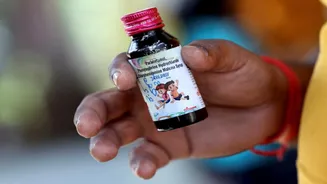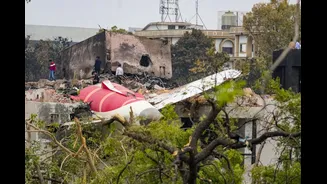A World Health Organization (WHO) official on Tuesday said that India still has significant ground to cover in preventing the sale of toxic cough syrups, according to a Reuters report.
The statement comes after at least 24 children died from consuming a locally manufactured medicine.
The victims had taken Coldrif cough syrup, produced by Sresan Pharma, which was found to contain dangerously high levels of diethylene glycol — nearly 500 times the allowable limit.
The incident follows a series of similar tragedies, including the deaths of at least 300 children globally over the past two years, linked to syrup-based medicines made in India and Indonesia.
While international efforts were pledged to tighten safety regulations in response, the WHO noted that serious enforcement gaps remain, added the report.
“It’s a work in progress,” added Kuwana, the WHO team lead for incidents involving substandard and falsified medicines.
“There’s a lot that needs to be done. It’s a big market, with tens of thousands of manufacturers and many states to deal with,” Kuwana said.
Last week, Reuters reported that India plans to drop its export testing requirement once pharmaceutical companies upgrade their facilities to meet international standards by the end of the year.
A WHO spokesperson, in an email dated October 20, said the agency welcomed all efforts to improve medicine quality.
However, when asked about India’s plans to end export testing, the spokesperson emphasised that medicines — including raw materials — should be tested throughout the manufacturing process, not only at the final stage.
Indian law requires drugmakers to test both raw materials and finished products, but in October, the Central Drugs Standard Control Organisation (CDSCO) acknowledged that some companies had failed to comply.
Kuwana noted that countries like Pakistan had taken part in WHO-led training on toxin testing and that a new, more affordable method had been developed. While India did not participate in the training, it has informed the WHO that it is using the testing method.
Kuwana also expressed frustration over the lack of accountability following previous incidents, calling it a “big disappointment.”
Despite the deaths of hundreds of children abroad, there is no record of any prosecutions or jail time in India, he said.
“This is not just selling fake shoes,” said Kuwana. “This is a moral issue, and if you don’t follow the rules, it’s criminal, because it has devastating consequences.”
With inputs from agencies














